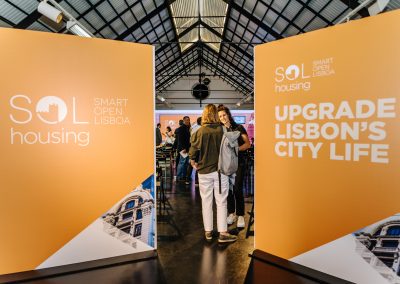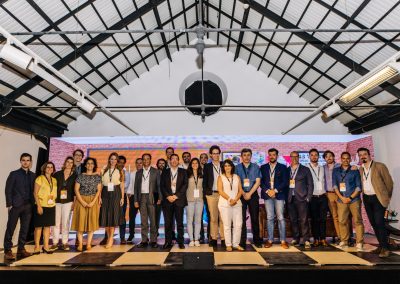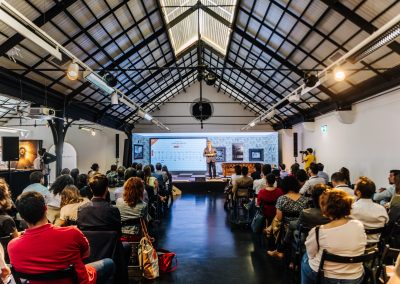
Smart Open Lisboa (SOL), an open-innovation program connecting some of the most relevant players in the residential and commercial real estate sector with startups to implement innovative solutions in the city of Lisbon, had the Demo Day for its Housing vertical, today at Museu da Água.
The 14 startups selected for this phase in the program worked on 25 pilots in partnership with the big corporations involved in the program, that ranged from real estate companies to construction companies and to utilities.
An on-going process
After an intense Bootcamp, where startups and partners met for the first time and worked on collaborative pilots, the Demo Day showcased the work that partners and startups have been developing for the last two months and the first results of these collaborative pilots.
The different rhythms of these two types of companies and the matching of technology and processes make the experimentation become a journey – these are just the first results and plans, from which the teams can learn to keep perfecting the projects in the months to come.
Solutions for real estate
The projects presented by the startups varied in range and style within the real estate and housing sectors: from testing the predictive maintenance of water leaks to the logistics and management processes associated with the food-court of commercial spaces. But they all added new layers into the partners’ businesses, for example:
- Heptasense is working on identifying behaviors via surveillance cameras already installed in commercial spaces. Using Heptasense’s solution, it is possible to identify behaviors (without comprising the anonymity) of the users of the space. In this way, it’s possible for commercial spaces to identify theft in real time, and also qualify the spaces they offer and give them fair value.
- Howz is working with social assistance from the Municipality to use their sensors in the homes of the assisted elderly population. The sensors examine behavior through electricity use, analyze patterns and notify the system in case of abnormalities. The system will allow for faster assistance in case of need, and the reduction of unnecessary emergency calls.
- OneGrid, Meazon and Enerbrain are experimenting with partners in ways to measure consumption and identify over-consumption to take action and reduce costs in building management.
What all the projects have in common is that they all contribute to reducing inefficiency, making decisions based on accurate data and shift these companies to a more proactive way of managing.




